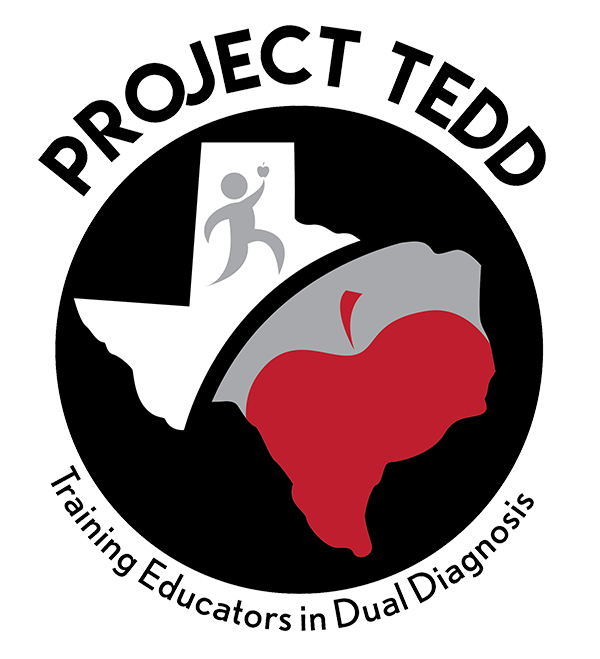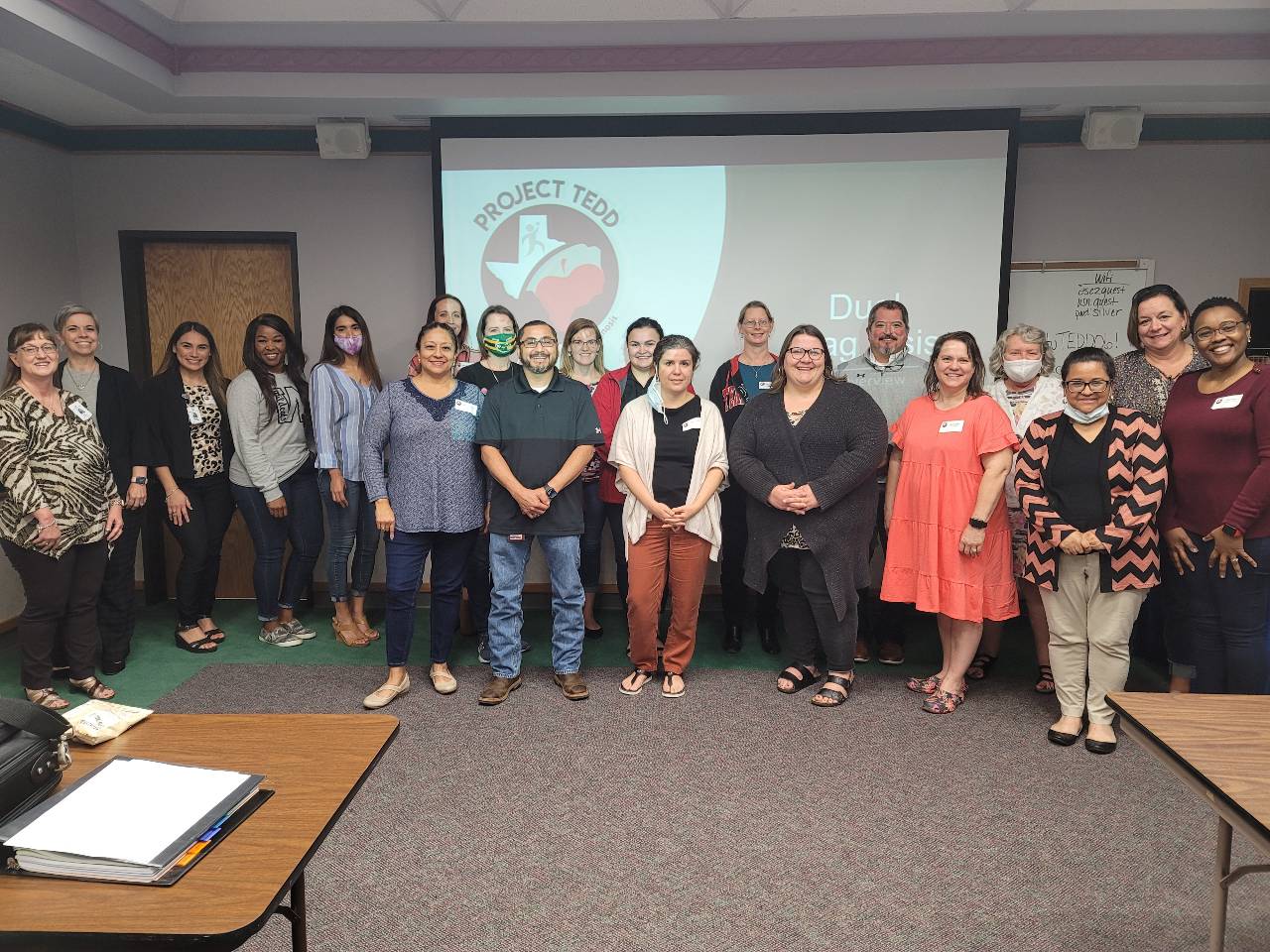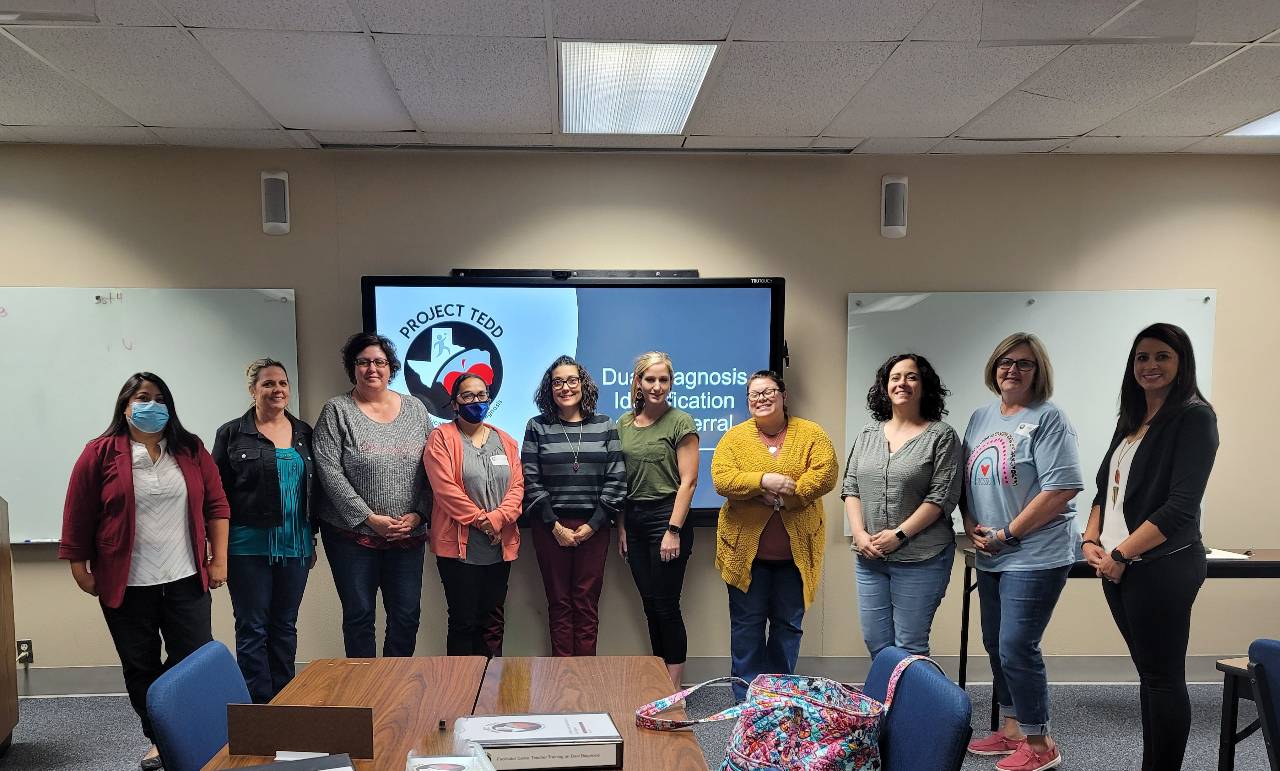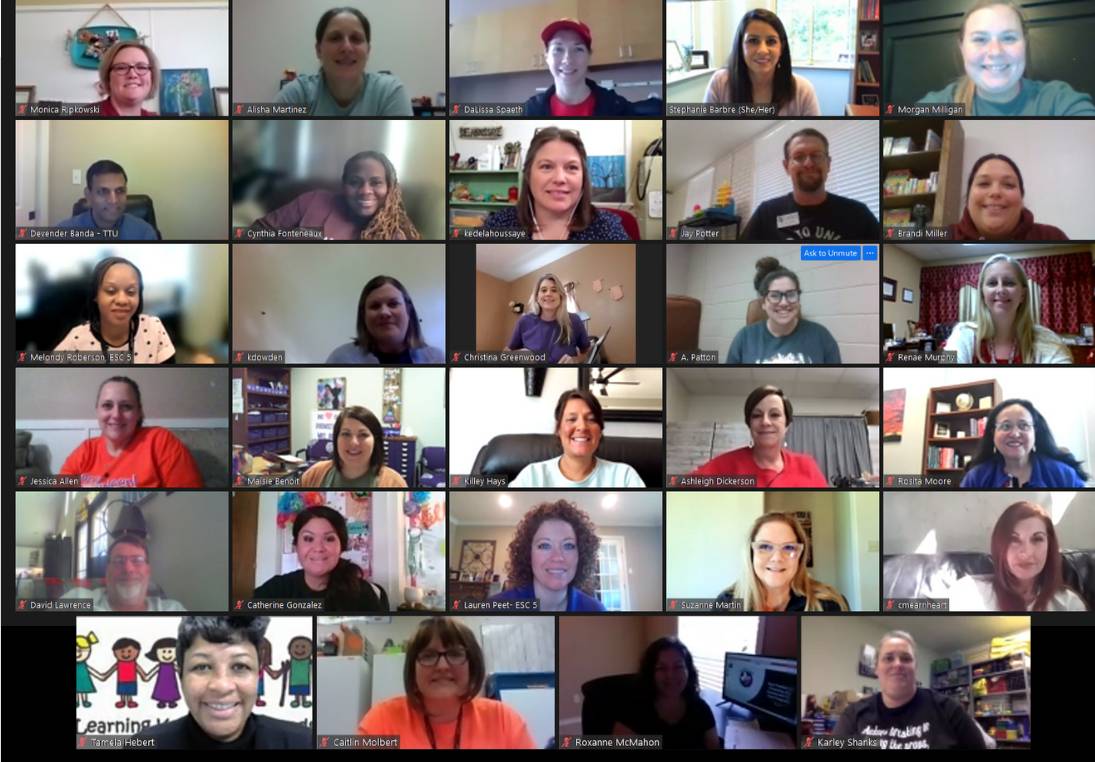
The training was provided through the Virginia Murray Sowell Center for Research and Education in Sensory Disabilities.
A group of 61 teachers and professionals from schools in the Texas Gulf Coast region recently completed training as part of Project TEDD: Training Educators in Dual Diagnosis, an initiative to address a state need for K-12 educators who specialize in teaching students who have a dual diagnosis of an intellectual and developmental disability (I/DD) and a mental health condition.

The participants, from schools in Education Service Center (ESC) Regions 2, 3 and 5 completed a one-day workshop through Texas Tech University's Virginia Murray Sowell Center for Research and Education in Sensory Disabilities to learn necessary skills for recognizing, understanding and working with individuals with dual diagnosis. The workshop also equipped them to train other teachers on dual diagnosis. A total of 59 school districts were represented at the trainings.
“Congratulations to this dynamic group of educators who are committed to serving children who have a dual diagnosis,” said Devender Banda, the project director and professor of special education at Texas Tech. “Youth with I/DD need unique services and support to be prepared for further education, employment and independent living in the community following high school. Our TEDD graduates are prepared to meet this need, and they are equipped to pass along their knowledge and skills to other educators in their districts.”

A full list of participants from ESC Region 2, Region 3 and Region 5 can be found on the TEDD website.
“This experience will help us be an advocate for all students by providing resources and services to the families of individuals with disabilities,” said Alice West, an adaptive education teacher at the Mary Grett Transition Center in Corpus Christi Independent School District who participated in the trainings. “As educators, we need to use the best practices and strategies that support students through special education referral and assessment procedures while focusing on their mental health needs.”
Developmental disabilities are severe, chronic disabilities that occur before the age of 22, such as autism, cerebral palsy, intellectual disabilities, traumatic brain injury and epilepsy. A dual diagnosis refers to individuals with an I/DD who concurrently experience a mental health condition.
Project TEDD participants receive knowledge in the areas of identification, referral, assessment, behavior and academic best practices. Participants also receive advanced training in crisis intervention, working with families and collaboration and communication. This new knowledge enables educators to make meaningful changes in their school districts and support collaboration with agencies outside school settings serving individuals with dual diagnosis.

Project TEDD aims to train a total of 400 special educators over five years using a "train-the-trainer" approach. Each participant is expected to train at least five additional educators, meaning Project TEDD will impact an additional 2,000 or more educators across Texas. The first group of teachers to complete the program was selected from ESC Region 17 in West Texas, and subsequent trainings were provided in Regions 1 and 4. Project TEDD will eventually provide training to all ESC regions in Texas.
“These three workshops complete our training schedule for this year,” said Stephanie Barbre, project manager for Project TEDD. “The teachers we've trained will now train other individuals in their school districts and submit documentation and data back to the project staff. We are also in the initial planning stages for next year's trainings in ESC Regions 6, 7, 8, 9 and 10.”
Project TEDD is coordinated by Texas Tech and funded by a $1.5 million grant from the Texas Council for Developmental Disabilities (TCDD). The mission of TCDD is to create change where all people with disabilities are fully included in their communities and exercise control over their own lives.
